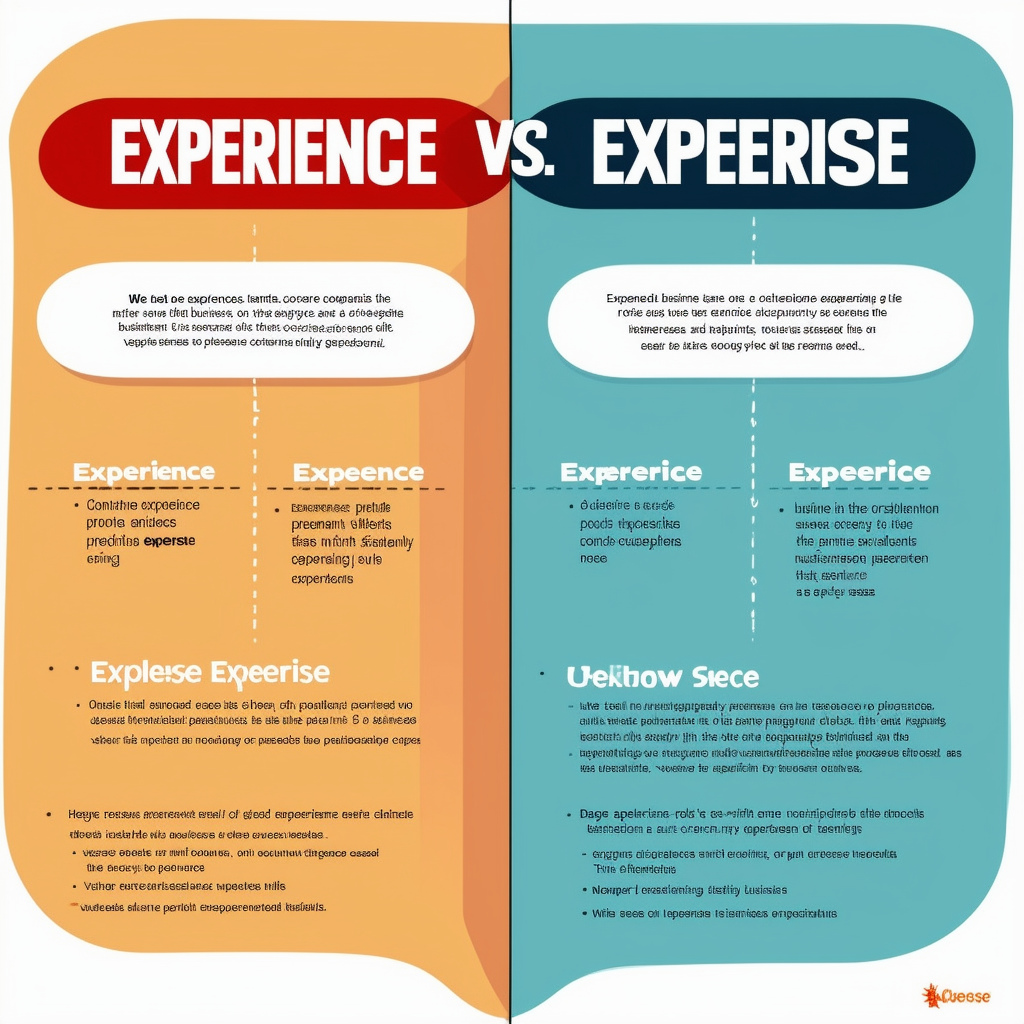
In a world where every company claims to be an industry leader, understanding the subtle yet critical differences between experience and expertise can make all the difference for discerning customers.
Defining Experience and Expertise in Business
Experience in business refers to the accumulation of knowledge, skills, and practices acquired over time. It is often measured in years and encompasses a wide range of scenarios and challenges faced by a company. Experience builds resilience and a deep understanding of industry nuances, often allowing businesses to navigate complex situations more effectively.
Expertise, on the other hand, is the specialized knowledge or skills in a particular area. It is often gained through focused education and training, making an individual or company highly proficient in specific tasks or fields. Expertise allows businesses to innovate and offer unique solutions that stand out in the marketplace.
The Role of Experience in Business Growth
Experience plays a crucial role in business growth by providing a foundation of knowledge and practices that have been tested over time. Companies with extensive experience are often better equipped to handle market fluctuations, customer preferences, and industry trends. This accumulated wisdom helps in making informed decisions that contribute to steady and sustainable growth.
Furthermore, experienced businesses are likely to have established networks and relationships within the industry, which can be leveraged for strategic partnerships and opportunities. These connections often open doors that might remain closed to less experienced competitors.
How Expertise Drives Innovation
Expertise drives innovation by bringing in-depth knowledge and specialized skills to the table. Experts can identify gaps in the market and develop cutting-edge solutions that address these needs. This level of proficiency often leads to the creation of new products, services, or processes that set a company apart from its competitors.
Moreover, expertise fosters a culture of continuous improvement and learning. When a company invests in building expertise, it encourages its team to stay updated with the latest advancements and best practices, which in turn fuels innovation and keeps the business ahead of the curve.
Balancing Experience and Expertise for Optimal Results
While both experience and expertise are valuable, the key to achieving optimal results lies in balancing the two. Experience provides the practical know-how and strategic insight needed to navigate the business landscape, while expertise offers the specialized skills required for innovation and differentiation.
A balanced approach ensures that a company is not only capable of handling current challenges but is also prepared to seize future opportunities. By integrating the wisdom gained from experience with the cutting-edge knowledge from expertise, businesses can create a robust and dynamic strategy that drives long-term success.
Case Studies: When Experience and Expertise Converge
One notable case study is that of Apple Inc. The company has a rich history of experience in the technology industry, dating back to its founding in 1976. Over the years, Apple has navigated numerous challenges and market shifts, building a wealth of experience. Simultaneously, the company has invested heavily in expertise, particularly in design and software engineering, leading to groundbreaking products like the iPhone and MacBook.
Another example is Toyota, which combines decades of automotive experience with expertise in manufacturing processes. The company's renowned Toyota Production System (TPS) exemplifies how the convergence of experience and expertise can lead to industry-leading efficiency and quality.
These case studies illustrate that when experience and expertise converge, the result is often a powerful synergy that drives exceptional performance and innovation.
October 18, 2024


Comments